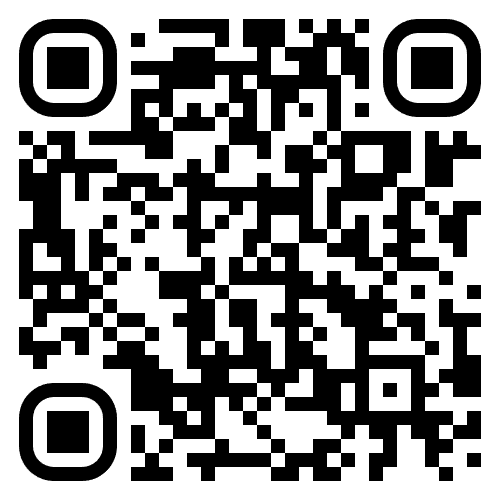



Pacing Tracker
- The quizzes have included questions for 10 objectives. Have you passed at least 80% of them? What are you plans to master those you have't mastered yet?
- We've finished units 1 and 2. Have you started your self-directed learning project for each unit? Ideally you've finished your first SDL, and started (or working on a proposal for) the second.
- Remember you can submit only one SDL project per week, so plan ahead and don't let yourself get behind.
Fourier Transform Video
This video helps answer the question: "Are polar coordinates useful?" Turns out they are the backbone to basically every device in the digital era. Without them, we would not have any modern inventions.
- Fourier Transforms - The first 3 minutes in class is sufficient. Keep watching, on your own, if it spiked your interest.
Brain Gains

- A curve passes through the point $(3,5)$. Differentials at this point are $dx = 7dt$ and $dy=11dt$. Give an equation of the tangent line to the curve at this point.
Solution
One option is to give a vector equation such as $$ \begin{pmatrix}x\\y\end{pmatrix}=\begin{pmatrix}7\\11\end{pmatrix}t+\begin{pmatrix}3\\5\end{pmatrix} \quad\text{or}\quad \begin{pmatrix}x\\y\end{pmatrix}=\begin{pmatrix}7t+3\\11t+5\end{pmatrix} .$$ Another option is to use point-slope form and give $$y-5 = \frac{11}{7}(x-3).$$ Another option is to give parametric equations $$x=7t+3, y=11t+5.$$ All these answers are acceptable. All will generalize to higher dimensions in different ways.
- For the curve $r=5\cos 2\theta$, graph the curve in the $r\theta$ plane.
Solution
We'll do this together.
https://www.desmos.com/calculator/nurgyiojif - The blue curve
- For the curve $r=5\cos 2\theta$, graph the curve in the $xy$ plane.
Solution
We'll do this together.
https://www.desmos.com/calculator/nurgyiojif - The red 4 petaled rose.
- For the curve $r=5\cos 2\theta$, compute $\frac{dx}{d\theta}$.
Solution
We know that $x=r\cos\theta$, and since $r=5\cos 2\theta$, we have $x = 5\cos 2\theta \cos\theta$. From here we just use the product rule to obtain $$\begin{align} \frac{dx}{d\theta} &= \frac{d}{d\theta}(5\cos 2\theta) \cos\theta+5\cos 2\theta \frac{d}{d\theta}(\cos\theta)\\ &=(-10\sin 2\theta) \cos\theta+5\cos 2\theta (-\sin\theta). \end{align}$$
Group problems
- Plot the curve $r=4-4\cos\theta$ in both the $r\theta$-plane, and the $xy$-plane. [Hint: Make an $(r,\theta)$ table, but pick values for $\theta$ that make $\cos\theta$ easy to compute. Did you get a heart shaped object?]
- Plot the curve $r=3\sin2\theta$ in both the $r\theta$-plane, and the $xy$-plane. [Hint: Make an $(r,\theta)$ table, but pick values for $\theta$ that make $\sin2\theta$ easy to compute. Did you get a clover?]
- Consider the polar curve $r=\frac{2\theta}{\pi}$.
- Draw the curve in the $xy$-plane for $0\leq \theta\leq 4\pi$. Check your work with Desmos.
- Compute $\frac{dx}{d\theta}$ and $\frac{dy}{d\theta}$. (Hint: They appear in the integral in the next part.)
- What quantity does the following integral calculate? $$ \int_0^{4\pi}\sqrt{\left(\frac{2}{\pi}\cos\theta-\frac{2\theta}{\pi}\sin\theta\right)^2+\left(\frac{2}{\pi}\sin\theta+\frac{2\theta}{\pi}\cos\theta\right)^2}d\theta$$
- Find the slope $dy/dx$ at $\theta=\pi$.
- Give an equation of the tangent line at $\theta = \pi$.
- Consider the curve $v=u^2$ and use the change-of-coordinates $x=2u+v$, $y=u-2v$.
- Draw the curve in both the $uv$-plane and the $xy$-plane.
- Compute $dx$ and $dy$ in terms of $u$ and $du$ (we know $dv = 2udu$ since $v=u^2$).
- Find the slopes $\frac{dv}{du}$ and $\frac{dy}{dx}$ at $u=-2$.
- Give a vector equation of the tangent line to the curve in the $uv$-plane at $u=-2$. [Check: $(u,v) = (1,-4)t+(-2,4)$.]
- Give a vector equation of the tangent line to the curve in the $xy$-plane at $u=-2$. [Check: $(x,y) = (-2,9)t+(0,-10)$.]
- Let $v=u^3$ and use the coordinates $x=2u+v$, $y=u-2v$.
- Draw the curve in both the $uv$-plane, and the $xy$-plane (make a $(u,v)$ and $(x,y)$ table).
- Find $dx$ and $dy$ in terms of $u$ and $du$.
- Find the slope $dy/dx$ at $u=1$.
- Give a vector equation of the tangent line to the curve in the $xy$ plane at $u=1$.
|
Sun |
Mon |
Tue |
Wed |
Thu |
Fri |
Sat |
